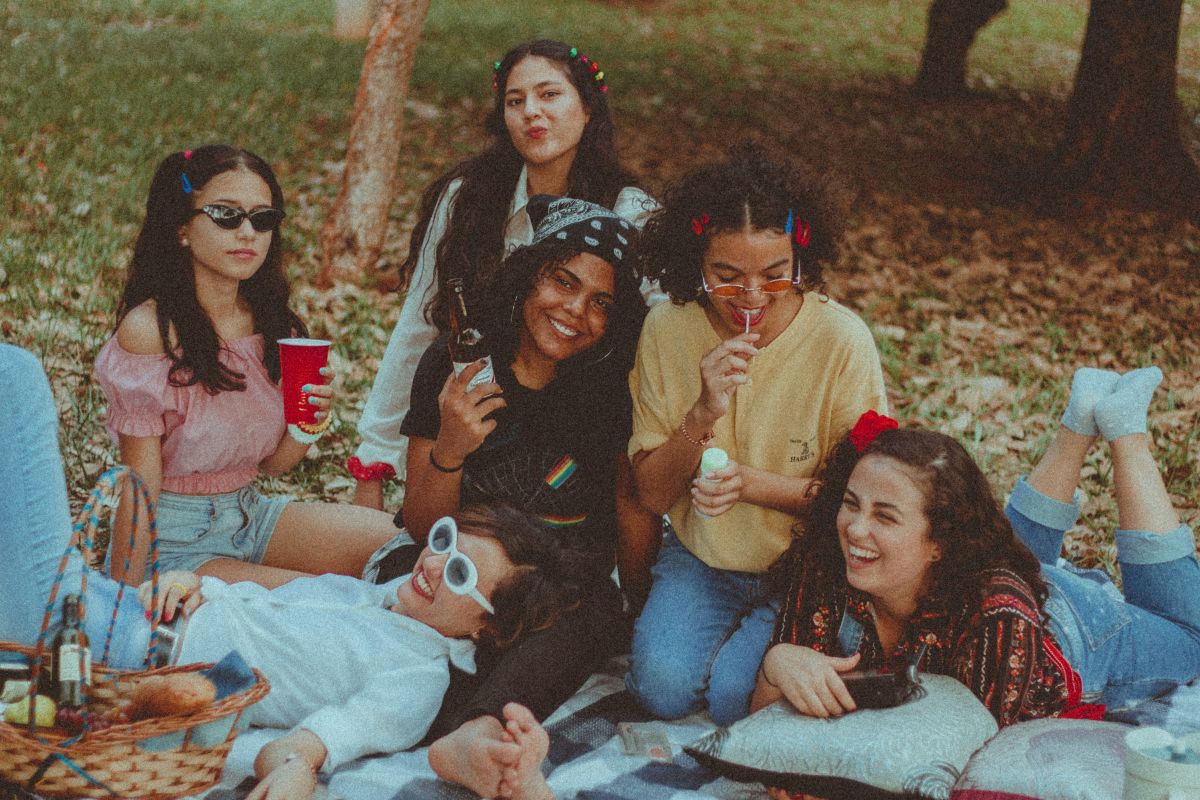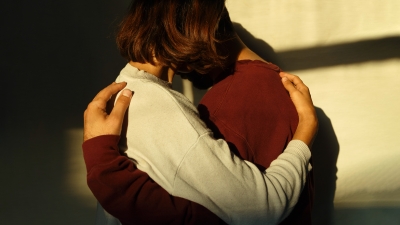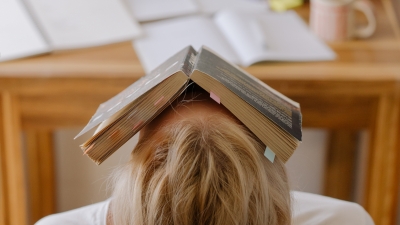Think about the last time you spent an afternoon with friends. Perhaps it was in a park, or on the balcony of your student house, maybe at a festival? These memories probably put a smile on your face. After all, that is exactly what friends do to us: they bring us joy, which substantially increases our quality of life. Humans are social animals, and many of us place the contact with friends and family on the same level of importance as water and oxygen. Your social life (or the lack thereof) has a direct impact on your wellbeing, even more so if you are a student. Your high school friends, new classmates, teammates, or that fun hook-up: students surround themselves with a wide variety of people.
Well, at least that is what they used to do before the pandemic. When I asked students what they worry about most during this pandemic, 24% said loneliness and isolation. What consequences does isolation have on their mental health? What happens when you have not hugged your best friend in weeks? Is a "corona buddy" a good idea?
“Nothing in life is more necessary than friendship”
This is what Greek philosopher Aristotle stated back in his days. He categorised friendships into three types: those based on utility, those based on pleasure, and those based on mutual admiration of each other’s qualities. To him, only the last category deserves the label "true friendship". The first two types of friends are mostly convenient; nowadays we would term them “occasional friends”. Think about that colleague you share your sorrows with during the daily coffee breaks, but you never see outside of work. Or that high-school friend you only talk to at the yearly Christmas dinner. Although you might not perceive those people as actual friends, these casual friendships are crucial for your social development. They reflect the outside world and expose you to different points of view and opinions. As such, they make you feel connected with something bigger than yourself: society. But what if there are no occasions for your “occasional friends” and you only get to see your BFF from a distance?
Urban sociologist Prof. Dr Beate Volker (UU) studies friendship networks. She explains: “We all live in our own social bubble, and the pandemic makes that bubble even smaller and more limited. Although you will keep in touch with your best friends, the weaker friendships will fade away.” But that is not the end of the world, she assures us. “That is the beauty of friendships: they are forgiving, selfless, and dynamic. They do not have a clear ending like most romantic relationships. Instead, you will find each other again after a period of not being in touch, or even after fights.” So, you are simply friends and that is it. The current corona measures could even strengthen our friendships because we have more quality time with each other. People see each other one-on-one a lot more now, which means they have more time to give their undivided attention to each other. So, if you needed an excuse to go on a coffee date with your friend, there you go.
“I just want to meet up with my friends again without any fuss or worries.”
- Student Bart

The importance of hugging
Something in our one-on-one contact has changed, though. We must maintain a 1.5 metre distance at all costs. Although that might be convenient in some situations (such as the Dutch tradition of kissing everyone on the cheek three times on one’s birthday), the social distancing measure keeps people from hugging each other. A quick embrace to say hi, or an arm around your shoulders when you are feeling down: that is what most people miss the most. In Dutch, there is even a word to define this intense longing for physical touch: skin hunger (“huidhonger”). Still, this is not the same as loneliness. You can have a perfectly fine social life and still miss being touched. Experimental psychologist Dr Anouk Keizer (UU) explains: “There are two kinds of touch: sensing and feeling. Sensing describes the functional form of touch, like bumping into something. Feeling describes touch within a social context, which has a positive effect on our bodies. Social touch influences the way we experience pain, it connects people, and it lowers our stress levels.”
How does that work? When we touch or hug each other, a cocktail of hormones is released in our bodies, explains biological psychologist Dr Peter Bos (University of Leiden). One of them is oxytocin, which is fittingly nicknamed the “cuddle hormone". This hormone is important for the functionality of the happiness hormone serotonin and decreases the stress hormones cortisol and adrenaline. Altogether, cuddling causes more happiness and less stress. Additionally, oxytocin has a positive effect on our metabolism, digestive system, and immune system. With all these beneficial effects on our physical and mental health, one might almost be inclined to promote cuddling in times of pandemic…
“I miss my friends. I realised that I am a real people-person: I enjoy being surrounded by people, preferably a wide variety of people.”
- Student Nine
How about a corona buddy?
Our social circle suddenly became a lot smaller in 2020. Evolutionarily speaking, that is bad news for us. “Humans are social creatures. Although we would like to think of ourselves as independent, that is not really the case. We are not physically strong or self-sufficient, so we rely on others out of necessity. We have never been able to walk around on our own in nature, so it is an illusion to think we can do so now,” explains Peter. Single people and those living alone are therefore struggling even more with the social distancing measures, as social scientist Dr Linda Duits (UU) emphasised in the talk show Generation Lockdown. In her plea for the relaxation of social distancing measures for single people, she single-handedly coined the term “corona buddies”. Still, urban sociologist Beate is not a fan of the concept: “A label like that makes a friendship feel like something exclusive, which does not match the principles of friendship.” After all, how do you choose who to include in your bubble?
Luckily, there are plenty of alternatives, although they will never replace the real deal. If you are like me and you sometimes feel alone in these crazy times we are living in, here are five tips from Beate, Anouk and Peter:
- Step out of your comfort zone and take initiative. Send a message, right now, to that one friend you have not spoken to in weeks. Have a chat with the person in front of you in line at the supermarket. Ask someone from your study to stick around after that online class.
- Boost your oxytocin levels yourself. For example, by remembering a nice touch, having a self-care day, receiving a compliment, or listening to beautiful music. If none of this helps, “just eat some dark chocolate”, recommends Peter.
- Borrow a friend’s cat or dog for a week. Having an animal around will do wonders against stress. But “a cat doesn’t talk back, of course”, says Anouk.
- Find yourself a new hobby or get back to that old hobby you used to have when you were a child (hello, flute!). Beate Volker explains that engaging with a good book or piece of music can be an enriching experience, giving you a boost of energy and inspiration.
- Take this pandemic as an opportunity for some self-reflection. Ask yourself what your needs are in terms of touch and social contact. What did you miss and what not? How will you fit that into your life once the corona measures are lifted?
--
How is it really going with our students? In this series of five articles, I talk with students and scientists in search of answers, scientific explanations, and useful tips. What impact does the pandemic have on the wellbeing and development of students? How does a lack of touch and intimacy affect you? How do the students like the online classes? And what does the "new normal" look like?






